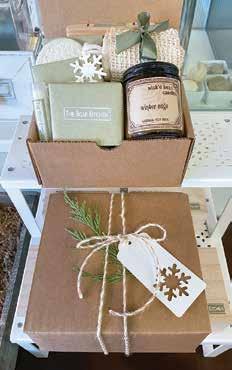
4 minute read
Good Clean Fun A Look at The Biggest Trends in Lotions and Soaps at Bath and Body Stores
By Corrie Pelc
There's no denying that consumers love shopping for luxury bath and body products. The luxury bath and body product market reportedly hit $14.5 billion in 2021, and industry experts estimate it will grow to almost 8% every year until 2030.
Around the country, bath and body shops are using a combination of special ingredients, large variety of fragrances, and unique offerings to help stake their claim in this highly-competitive market.
Focus On Natural Ingredients
At BGLH Marketplace in Brooklyn, N.Y., Owner Leila Noelliste focuses on all natural ingredients and does not use preservatives or synthetic chemicals in her lotions and soaps. "Our formulations have to rely on using natural ingredients that preserve themselves well and that can be manipulated without the use of synthetic chemicals to have a good texture and smell," she explained. "We really (try) to be as close to just natural, non-synthetic as we can in everything that we do."
Lotions are the focus of Noelliste's shop. She said her most popular products are her vanilla whipped shea butter, whipped cocoa butter, and cocoa shea blended butter.

"Cocoa butter is just such a perennially popular skincare ingredient," Noelliste said. "It's been used in so many different cultures and in so many ways, so I think that people are always looking for products with a good cocoa butter content. People love the idea of a cocoa lotion that has a very high percentage of cocoa butter in it."
On the other side of the country, Dali Yu has been making all-natural olive oil soap at her about 600-square-foot shop, The Soap Kitchen, in Pasadena, Calif., for over 18 years.
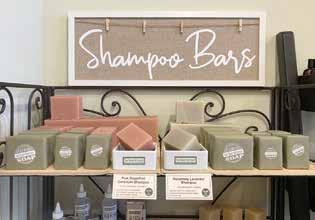
Continued on page 102 page 101)
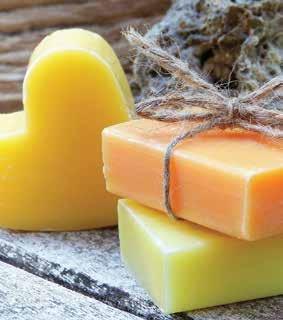
"We keep everything all natural and plastic free," she continued. "We only use essential oils and herbs in our soaps, so there's no artificial colors, no artificial fragrances. People love our soaps because they're great for people who are sensitive to perfumes and all kinds of chemicals. We have many long-term customers who have been coming to us for decades."
Although Yu offers her bar soap in 30 different scents, she said the most popular scent by far is lavender. "We make almost 10 different lavender soaps (in) different blends – we blend it with citrus, eucalyptus, rosemary, peppermint," she added. "Lavenders in general are very popular."
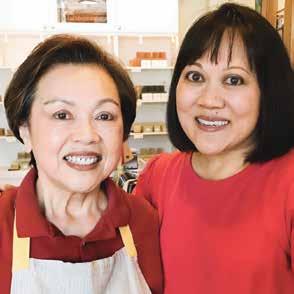
Think Outside the Bar
As a nurse, Deanna Wallin, CEO and founder of Naples Soap Company – with currently 10 open loca- tions throughout Florida – formulates all their bath and body products for people with sensitive skin. Although their natural soaps are a top seller, Wallin says another best-seller are their sea salt soaps made with a very fine salt that helps balance the pH level of a person's skin.
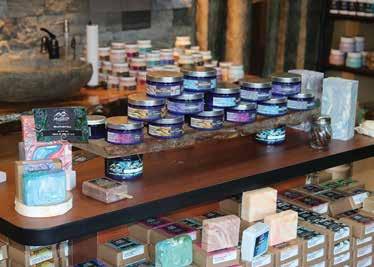
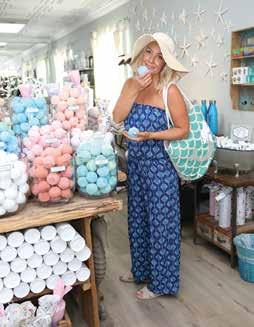
"People with skin issues when they go into the ocean, the salt changes the pH of the skin," Wallin explained. "(It's a) very similar concept to that. I just tried to figure out how to do that in the shower. I couldn't change the water other than softeners and purifiers and things like that, but I could change the type of soap I was putting on my body."
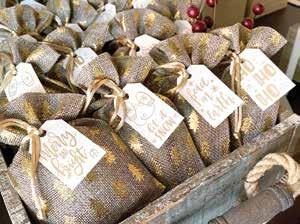
And at Wild Mountain Soap Company in Fayetteville, W.V., Owner Phillip Peelish added fun to their handmade, cold-pressed soap offerings with their Squatch Soap. "It's actually a hairy bar of soap," he explains. "It's covered in hair and that's your washcloth and soap all in one. That's a popular one that people pick up when they come in (the store)."
Peelish also puts a unique spin on the soaps and lotions they offer in their 1,000-square-foot store by focusing on scents specific to their local area. "We're in the mountains here in Appalachia ... so some of our main scents are locally marketed," he said.
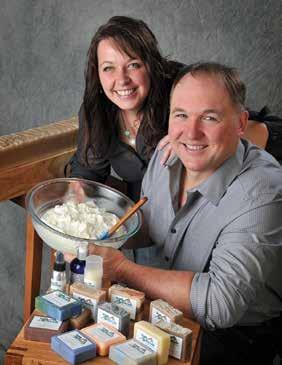
In fact, Peelish said their top selling fragrances – Appalachia Waterfall, Mountain Energy, and Oatmeal, Milk and Honey – are made for their state parks in their area. In addition to providing bath and body products in those scents for state parks to sell at their own gift shops, Wild Mountain Soap Company also makes amenity sizes for the lodges and cabins park goers can stay at.
"So if you go and stay at one of our state parks, you'll get a soap, shampoo, conditioner, and lotion in one of those scents," he added.
Keep Products Accessible and Personal
When it comes to selling lotions and soaps, Wallin stressed the importance of displays. She said they try to keep the walls of their stores – which average around 1,200 square-feet – very uniform.
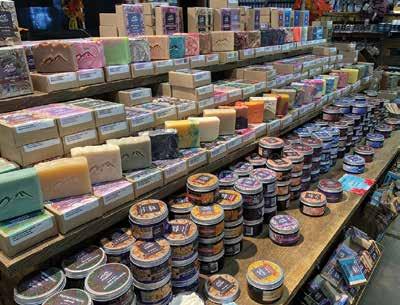
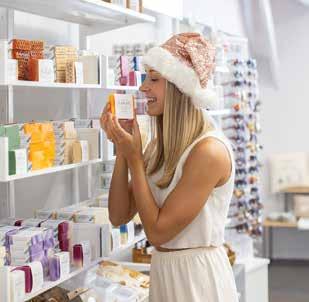
"Beauty products are a little difficult to display on large shelves, so we try to keep the walls uniformed and line them by category," she explained. "But in the middle of the store, we put fun displays and mix fun products in with that."
And Wallin said signage if critical, especially during the holidays. "When your associates
Continued on page 104
Good Clean Fun (From page 103)
are really super busy, your signage has to help do some of the heavy lifting," she said. "Customers want to know what they're looking at and how much it is. If they don't have the information, they'll just pass on it."
Peelish suggested always having a large selection of products available in displays. "If you have one, two, or three of an item, that generally doesn't work as well," he detailed. "(Customers) think it's the last little bit of something, they think it might either be old or something like that."
While they make testers available for some products, Peelish said they attend various craft shows within a twomile radius of their store to allow potential customers to try their products.
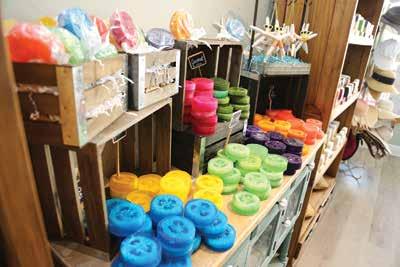
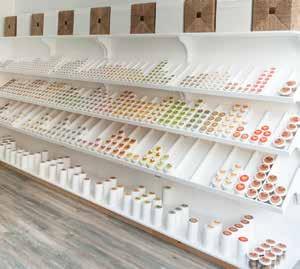
Another way to help increase sales is through gift sets, which The Soap Kitchen knows about first-hand. "We have lots of gift options to choose from," Yu explained. "From as small as a single bar (because) sometimes you need to just give a little something to a lot of people. And then up to big spa packages for when (someone needs) to give something super special."
And Noelliste says it's important to remember buying bath and body products is a very personal experience, and to keep that in mind when sending marketing communications and interacting with customers.
"It's products that are going on their bodies, its products that they are interacting with every day," she explained. "And because it's such a personal category, we've been putting a lot of effort into really building that trust relationship with our customer base (and) not taking for granted that they're letting us into their homes. So I would say wherever you're at in (your) journey of selling lotions, prioritize building that connection with your customer base." ❖
